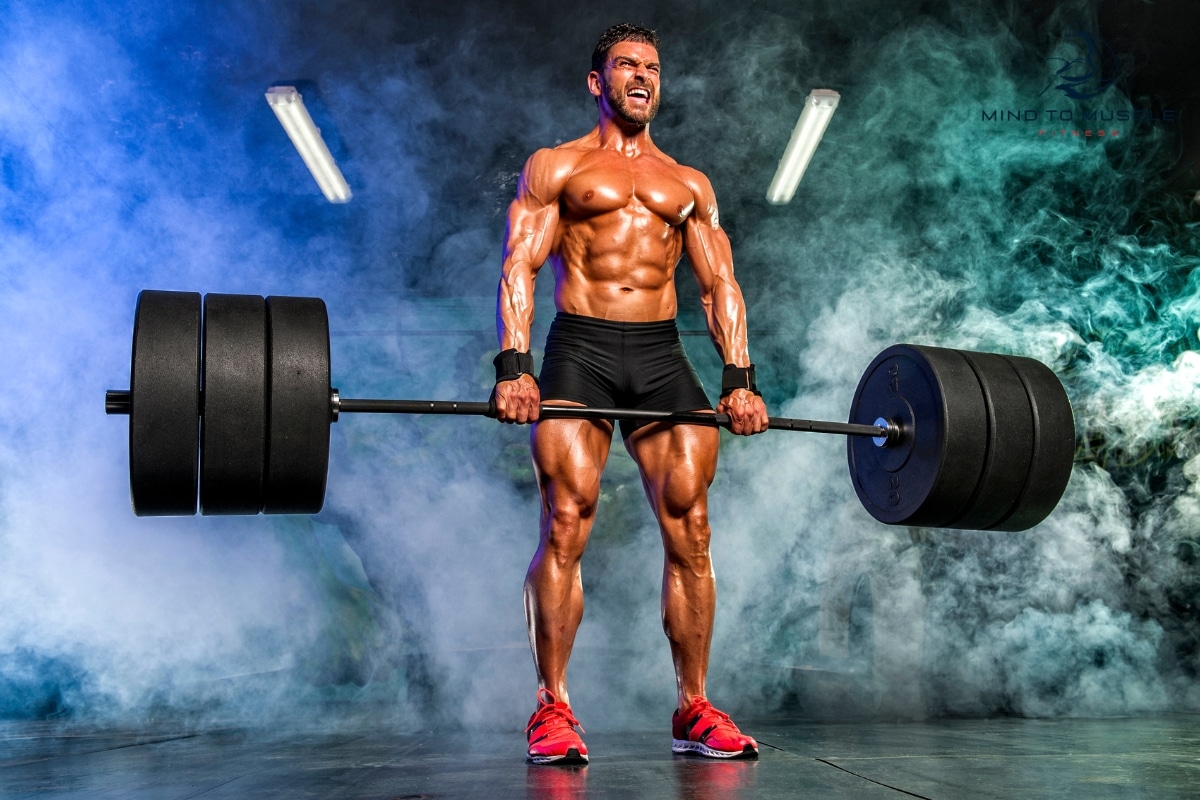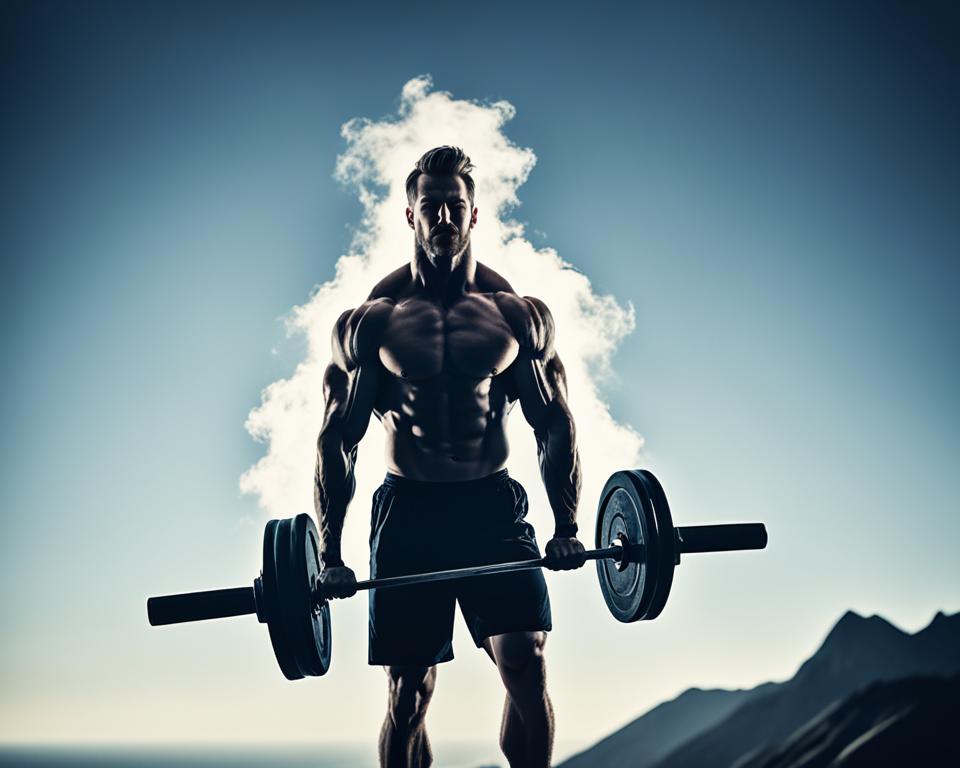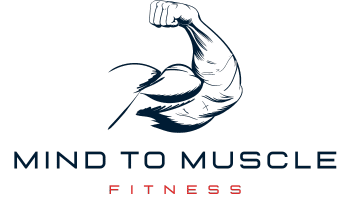
Unlock Power with My Ultimate Deadlift Program
The deadlift is a powerhouse move in powerlifting. It works a bunch of muscles for total-body strength. Unlike other exercises, deadlifts let you lift heavier weights. This works the posterior chain, which includes major muscles like traps and glutes. This full muscle work boosts your powerlifting and everyday strength.
My program uses these power moves to build a strength routine that focuses on form. With advice from lifting legends, it’s designed to improve your grip and posture. My Deadlift Program will help you reach new power levels.
I’ll teach you how to do deadlifts right, to engage more muscles with each lift. This program is about more than just lifting. It’s about lifting smart and building strong grip strength. Together, we’ll start a journey to powerlifting success.
Key Takeaways
- Master the deadlift, a compound exercise vital for enhancing overall strength and muscle building.
- Strengthen your posterior chain for better functional daily movements and lifting heavier weights.
- Develop your core and grip strength for a more robust lifting performance and injury prevention.
- Employ proper deadlift form to target key muscles, including erector spinae, glutes, and hamstrings, efficiently.
- Integrate targeted auxiliary exercises for comprehensive improvement in deadlift execution and muscle development.
- Connect deadlifts to powerlifting success by making them a staple in your muscle building program and strength training routine.
Exploring the Deadlift: More Than Just Lifting
Learning how to deadlift properly shows it’s much more than lifting weight. It involves almost every muscle group. The key in deadlifting is not just strength. It’s also about technique, control, and coordination. This is what I bring into my lifting program for deadlifts. It mixes tough training with biomechanical precision.
When guiding people on their deadlift journey, I talk about the exercise’s mechanics. Deadlifts work a wide range of muscles, making them key in strength training. My program highlights slow progress. That way, lifters can really improve their strength over time.
In a study, 25 men trained for 6 weeks. They worked out three times a week. The deadlift group showed more progress than the squat group. This proves the value of focused training for how to deadlift properly.
| Statistic | Deadlift Group (DE) | Squat Group (SQ) |
|---|---|---|
| Average Age | 24.3 ± 4.1 years | 22.3 ± 1.6 years |
| Body Mass | 84.8 ± 14.2 kg | 83.0 ± 13.6 kg |
| Body Height | 180.3 ± 6.8 cm | 179.9 ± 6.1 cm |
| 1RM Increase | Significant (p = 0.017) | Lesser (p = 0.049) |
| Jump Performance Increase | Significant (p = 0.010) | Significant (p = 0.010) |
In competitive sports, athletes aim to get better. They love the deadlift. My workout plan uses the heat of competition. It has both deadlifts and squats. These exercises don’t just build strength. They also help with jumping, a key skill in many sports.
But, being careful is key. Some had to stop due to back pain. This shows deadlifting needs care. I promise that a custom plan focusing on form can be both safe and effective. My goal is to boost your strength and teach you deadlift mechanics.
My Ultimate Deadlift Program: A Roadmap to Strength
Powerlifting is becoming very popular. Many are now choosing to improve their strength instead of focusing on bodybuilding. Over the last ten years, I’ve helped many athletes. I’ve developed a weightlifting program that focuses on power and accuracy. This approach combines components of traditional powerlifting with aspects of muscle hypertrophy, creating well-rounded strength and muscular development. My powerbuilding program for strength caters to individuals looking to maximize both their raw power and aesthetic goals. By emphasizing proper technique and progressive overload, it ensures consistent progress while minimizing the risk of injury.
Experts like Mark Rippetoe have created great starting points with their programs. However, I noticed some gaps in their methods. This led me to develop the Beginner Powerlifting Blueprint. It’s a deadlift program that fills those gaps, helping lifters improve.

How to Deadlift Properly for Maximum Gains
Deadlifting is not just about strength. It involves careful technique and planning. The Blueprint teaches you to deadlift efficiently. It combines physical strength with smart strategy, helping you reach new heights.
Incorporating Powerlifting Exercises into Your Routine
The Blueprint can be found on the Strength Block Training App. It’s not just workout routines but a comprehensive guide to powerlifting. It includes workout logs and diet advice. This program covers everything from basic moves to advanced strategies.
My best deadlift program can help you join the 1,000-Pound Club. Starting with basic steps, it helps you find your training max. This program will support you as you make steady progress. You’re not just lifting weight—you’re aiming higher.
Pulling off a powerful deadlift or perfecting a squat requires precision in every set and rep. With 3 to 4 sets of 6 to 8 reps for deadlifts, the program outlines a clear path. Your powerlifting journey is about building and honing your strength.
The Science Behind Muscle Building and Myostromin
At the heart of my muscle building program is myostromin. This is key for real strength improvements. Still, it’s important to know that without heavy strength tension in your lifting, myostromin won’t be much affected. This has been proven by lots of research.
My training routine is based on the Quick and the Dead (Q&D) method. It combines fast and strength-focused exercises. These workouts have 40-60 reps of explosive movements like kettlebell swings. This setup is great for growing muscles and getting stronger.
Powerlifters see great results from doing very few deadlifts. Look at John McKean’s minimalist approach—it shows that training hard but not often works great. My plan uses rest times based on research from the Soviet era. It says that after two minutes of hard training, your central nervous system starts to tire.
So, after Q&D sessions, we do deadlift sets with weights that are 50-70% of what you can lift once, max. This goes against doing lots of light pulls. My plan also changes based on each person because what feels heavy can vary daily. This shows how personalized my coaching is.
However, getting stronger isn’t just about lifting weights. A study with 2463 people showed that health and even genetics play a big role in strength. How you react to training can also depend on these factors.
Working out is also key for your brain health, increasing a part called the hippocampal volume. Genetics can explain up to 64% of the differences in this area. This highlights the need for training that suits each person’s unique background.
The Study of Health in Pomerania provides valuable data for my training methods. Through MRI scans and behavior studies, we learn how building muscles affects overall health.
| Powerlifting Factor | Impact on Myostromin & Strength | My Programming Approach |
|---|---|---|
| Strength Tension | Essential for myostromin elevation | Integrate heavy powerlifting exercises |
| Deadlift Repetition (Q&D Protocol) | 40-60 reps promote muscle growth | Speed loads and strength training combination |
| Ultralow Volume Practice | Increases efficiency | Rest periods designed after CNS research |
| Load Percentages | Varies for each individual | Customize “comfortably heavy” lifts |
My goal is to create a muscle building program that teaches and empowers. Whether through detailed powerlifting or strength routines, knowing the science is key to reaching your top potential.
Deadlift Variations for Comprehensive Muscle Engagement
Adding different deadlift variations to your routine does more than mix things up. It smartly hits various muscles, aiming for powerlifting triumph. These changes help you avoid hitting a workout plateau while expanding muscle growth.
The Traditional Deadlift and Its Impact on Muscle Groups
The traditional deadlift is a core exercise for strength. It not only strengthens muscles but also improves bone health and metabolism. It might even help reduce back pain.
Let’s explore some effects of strength training:
- The basic deadlift works a large number of muscle fibers. This is vital for building strength overall.
- Deadlifting boosts muscle force and stability by 10-24%, showing its effectiveness.
- It’s good for increasing bone and muscle mass. This is especially important for postmenopausal women, evidenced by a 35% lift-to-bone improvement ratio.
Sumo Deadlift: A Power-Packed Alternative
The sumo deadlift is known for making hips stronger and boosting mobility. Studies indicate it engages muscles differently than other types, with a 32-36% engagement rate. It comes with extra perks:
- This technique shifts the load, allowing more training with less back strain. It’s noted for better activating the glutes.
- It’s great for jobs needing leg force like police or military roles, providing excellent support for the body’s core.
Romanian Deadlifts and Targeting the Posterior Chain
The Romanian deadlift focuses on the back of the body. It aims at the hamstrings, glutes, and back muscles, key for lower body strength. Research on its benefits shows:
- It can help manage weight by 1-9% in treating obesity.
- For young athletes, it’s safe and can prevent injuries by 56-63%.
- Building muscle necessary for sports performance has seen a 47-50% improvement, essential for those doing Romanian deadlifts.
Combine these deadlift variations with a solid plan for the best results. Success in strength training hinges on progressing, perfect technique, and using proven exercises.
Mastering the Deadlift: Tips and Techniques from Expert Lifters
Starting a deadlift program boosts your strength and teaches you the right way to lift. I’ll share tips from top lifters and explain which muscles work during a deadlift.
The quadriceps are main players in pulling up, while the glutes help lock it at the top. The hamstrings and back muscles, like the latissimus dorsi, keep the bar close and prevent it from moving forward.
Core muscles are crucial as they protect the back by resisting bending. The hip flexors, calves, forearms, and hands also play important roles in holding and stabilizing the bar.
Doing deadlifts activates many muscles at once. This can boost your testosterone and make your bones stronger, important for any strength training.
Eddie Hall stresses on the need for correct foot placement, choosing the right grip, and breathing properly. These details are key for lifting more weight and keeping your joints and muscles healthy.
| Muscle Group | Function in Deadlift | Technique Tip |
|---|---|---|
| Quadriceps | Knee Extension | Feet half between heels and toes |
| Glutes | Hip Lockout | Drive hips forward |
| Hamstrings | Back Stabilization | Maintain hip hinge |
| Core | Spinal Stabilization | Brace abdominal muscles |
| Grip Muscles | Bar Control | Strengthen grip regularly |
Deadlift programs should be a mix of powerlifting exercises for balanced strength and growth. I suggest different sets and reps for strength and muscle size, focusing always on form.
Pushing through your hips is necessary to lift correctly. This method is great for daily life or for lifting competitions. Learning and using these tips will help you master the deadlift.
Deadlift Program FAQs: Answering Common Questions
As you progress in strength training, you’re likely to have questions. You might wonder why some exercises are more important. Or what can make your deadlift plan even better? We’ll answer these common questions. We’ll talk about why certain exercises are chosen and how to do them right. Plus, how to tailor the perfect deadlift program for you.
Many lifters question the benefit of recommended exercises. I assure you, each one has its proven merit. They help with core strength and increase what you can lift. It goes beyond just lifting more weight; it’s about lifting smart. I also tackle myths and false claims to keep you on the right path.
Making adjustments is all part of the journey, and I’m here to help. If the deadlift starts off as a challenge, don’t worry. Changes can be made. I’m here to support you at every step. Think of this not just as a plan for deadlifts but as a guide to real strength and confidence.
FAQ
What makes your deadlift program stand out from other muscle building programs?
Our deadlift program leans on advice from top powerlifters, like Andy Bolton. We focus on key techniques and powerlifting secrets. This approach ensures you build muscle strength safely and effectively.
Can beginners use this deadlift program effectively?
Definitely. Our program starts with the basics and advances carefully. It’s perfect for newcomers. We lay a strong foundation to boost your confidence and skill as you progress.
How often do I need to practice deadlifts to see improvements in my strength?
Regular practice is crucial. Aim for a deadlift session once a week, paired with a Q&D workout. This balance keeps your technique sharp and supports muscle growth.
What’s the importance of myostromin in muscle building and how does your program enhance it?
Myostromin plays a key role in muscle robustness. Our training boosts myostromin through specific exercises. This promotes muscle development and powers up your strength training.
Are there any variations of the deadlift included in your workout plan?
Yes, our plan covers several deadlift types to work different muscles. This variety ensures a balanced workout for people at all fitness levels.
How do expert lifters influence your deadlift training tips and techniques?
We incorporate wisdom from lifting pros into our program. It includes advice on the best grip and supportive exercises. This holistic method enhances both your physical and mental game.
What should I do if I am not making progress with my current deadlift numbers?
Focus on your form, rest, and diet first. Our program stresses gradual improvement. If you’re stuck, tweak your routine’s load or frequency. Remember, recovery is as important as the workout itself.
How do I adapt the program if I have a specific deadlifting goal?
Our deadlift program is adaptable to your needs. Adjust the focus according to your goals. We’re here to help you modify it for the best results possible. Feel free to ask for advice on personalizing your training.



